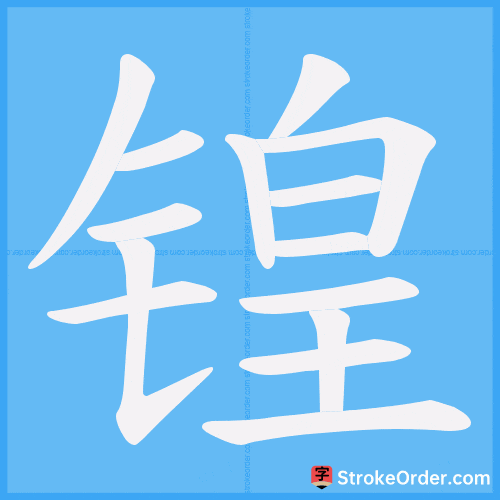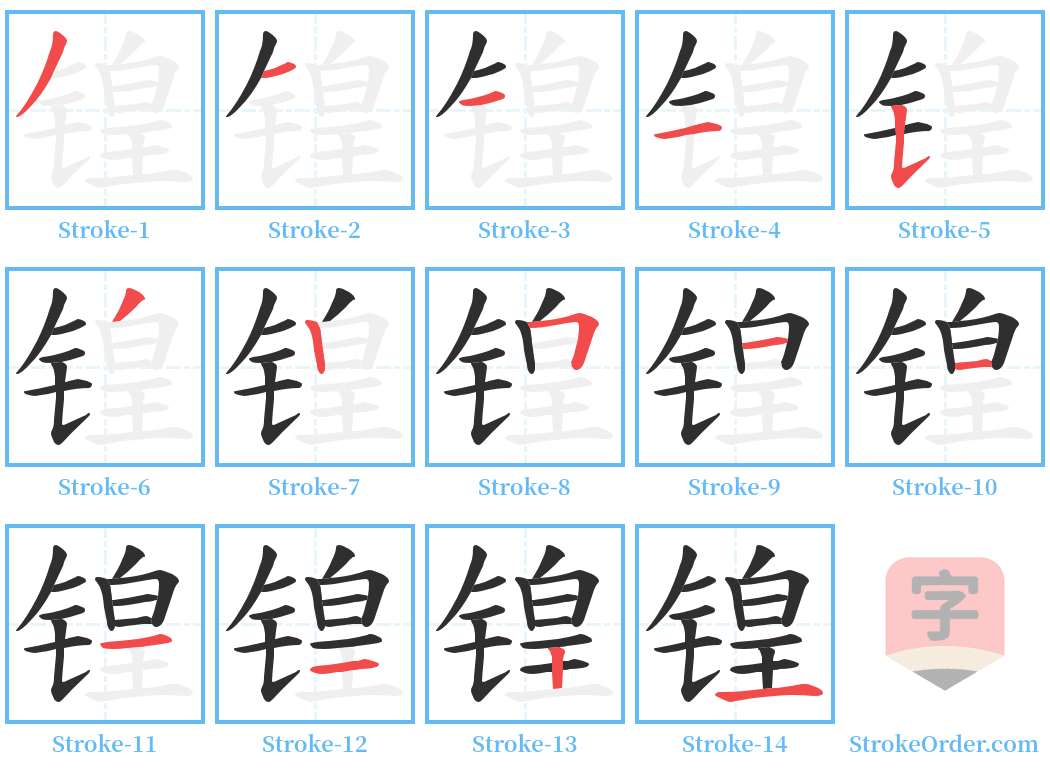锽 Stroke Order
Animated Stroke Order of 锽

Stroke Order Diagrams for 锽

Information of 锽
Pinyin
huáng
Radical
钅
Strokes
14 strokes
Usage
★★
Definition
锽
鍠 huáng
1. An ancient weapon, resembling a sword, with three edges, often used as ceremonial weaponry.
(Ancient weapon)
2. Sound of bells.
(En. sound of bells)
3. A type of weapon similar to a halberd, used during the Han and Tang dynasties for ceremonial purposes.
(En. ancient weapon)
4. Describing the loud sound of metal-made percussion instruments.
(En. tinkle; ding-dong)
引例:
1.《说文》:锽,钟声也。
(In the Shuowen, it states: "锽, the sound of bells.")
2.《诗·周颂·执竞》:钟鼓锽锽。
("In the Book of Songs: 'Bells and drums fill the air.'")
3.《文心雕龙·原道》:至于林籁结响,调如竽瑟;泉石激韵,和若球锽。
("In Wenxin Diaolong, it describes the harmonious sounds akin to natural instruments and the resonance of springs and stones, akin to the sound of 锽.")
4.茅盾《子夜》:在他耳边,立刻又充满了锽锽锽的锣声。
("In 'Midnight' by Mao Dun, it says: 'In his ears, the sound of gongs filled the air.'")
5.《正字通》:锽,兵器。
(In the Zhengzitong: "锽, a weapon.")
6.晋·崔豹《古今注·舆服》:锽,秦改铁铖作锽,始皇制也。
("In Jin Dynasty, Cui Bao’s 'Notes on Antiquity and Modernity' states: '锽, was made from iron in the Qin Dynasty, established by Emperor Shih Huang.'")